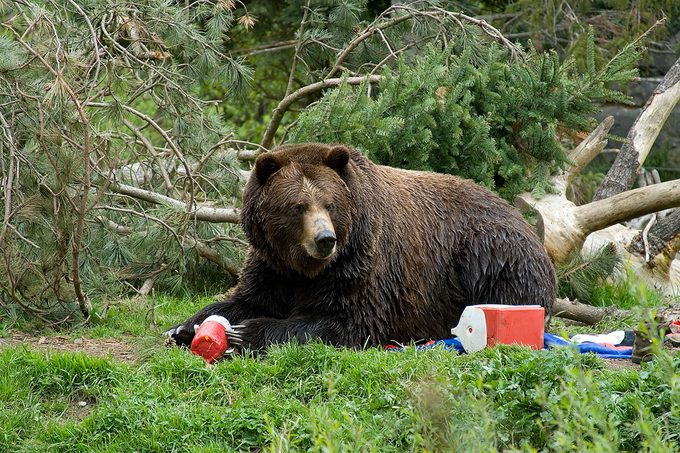5 Food Storage Tips for Camping Trips
Unless you plan on hunting and foraging for every meal, one of the most important aspects of planning a camping adventure is making sure you pack enough nutritious food. But keeping food supplies from spoiling and away from hungry wildlife is no small task, especially if you’re new to the camping experience. Here are some tips for keeping your food safely and securely stored while you’re on a camping trip.
Remove Packaging and Consolidate
Before you leave home, remove as many solid food items as you can from their original single-use packaging and consolidate them in reusable containers. Packing everything into a few containers lets you organize your food supply while reducing the amount of waste you’re bringing to your camping site. Look for storage containers with airtight lids, which help ensure freshness and dampen the scent of your food.
Keep Coolers Cool
Perishable items like raw meat, eggs, and milk must be kept at 40 F or less to keep from spoiling. Before loading your cooler, try chilling it for an hour; that gives you a head start. And instead of bags of ice to keep things cold, fill reusable water bottles to about three-quarters, freeze and use them instead. The ice-filled bottles will last longer than loose ice chunks. And once they’ve melted, you’ll have chilled drinking water ready to go.

Use Bear Bags and Bear Canisters
Camping in bear territory brings stricter rules for food storage. Bears are notorious for overturning campsites in pursuit of free snacks, so be smart and vigilant. Some suggest hanging your food from a tree, but that’s not always the best option. Instead, store it in animal-proof containers like bear canisters and bear bags, which cut down on food smells and are virtually impossible for bears and their friends to open.
Don’t Leave Food Unattended During the Day
The last thing you want is to return from a long hike and find your food supply has been ransacked. Just because it’s in a latched cooler doesn’t mean it’s safe from enterprising animals like raccoons. If you’re not cooking it or eating it at that moment, your food should be put away in a secure location.
Store Food Away From Your Tent at Night
Never keep food in your tent, especially at night. Storing your food in your car is a good idea in some areas. But in others, where bears and other wildlife are known to break into vehicles, campsites will provide campers with secure locations for food storage, like metal lockers. A good rule of thumb is to keep all food and food waste at least 100 yards away from where you sleep.
No comments